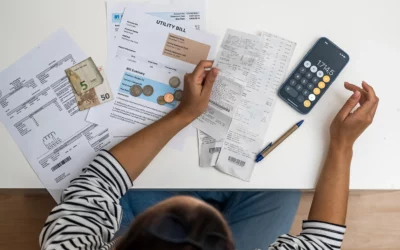Today’s weather is warm and sunny, but the holidays are less than 24 weeks away! We’re already talking about it, because it all comes down to planning expenses, and time flies. In less than 7 weeks, it’ll be time to buy school supplies, go back to school and register for extracurricular activities. Just before, there’s the vacations, but it’s now too late to budget for that…
Everything will cost more this year. In particular, there will be a further rise in variable mortgage rates. If we can’t increase our revenues, the only option is to work on expenses.
For the vacations, many people have chosen not to travel or to shorten their stay. Some have financed their vacations. In this case, it’s even more important to stick to the budget and plan ahead for the repayment period.
It all comes back to the famous budget, which remains important when everything costs more. The budget forces us to make tough decisions. This year, many people will not be able to save or will eat into their savings. There’s no easy way to balance your budget when everything costs more. The only recipe that works is the discipline to respect it.
A few tips for budgeting your expenses
It’s obvious: budgeting is easier said than done. Respecting it is even more important. Nevertheless, to help you get a grip on your expenses, here are a few practical tips for setting up a concrete, relevant budget.
Assess income
Start by determining your net monthly income. This is the amount of money you have available after paying all taxes and deductions. It’s essential to assess this in order to allocate it to the different categories of expenditure.
Identify essential expenses
Make a list of all your essential monthly expenses. For example, housing, electricity bills, transport, insurance, food, etc. They are generally fixed and necessary to maintain your standard of living.
Set savings goals
Determine how much you want to save each month. Set yourself realistic goals, whether it’s building an emergency fund, saving for a long-term project or paying off debts.
Analyze discretionary spending
Identify non-essential expenses, such as hobbies, outings, clothing, impulse purchases… They are often flexible and can be reduced if necessary.
Allocate an amount to each category
Allocate your disposable income among the different expense categories according to their priorities. Pay particular attention to essential expenses and savings. Leave room for discretionary spending.
Track and adjust the budget
Keep track of your actual expenses and compare them with your initial budget. Use personal financial management tools, such as apps or spreadsheets, to make this task easier. If you notice any major discrepancies, adjust your budget accordingly.
Prioritize spending reduction
Identify areas where you can cut costs. For example, look for ways to save on utilities, find cheaper alternatives for leisure activities or avoid impulse purchases. Every little bit of savings can help balance your budget.
Plan for the unexpected
Leave some leeway in your budget for unforeseen expenses or emergencies. This will prevent you from finding yourself in a difficult financial situation if unexpected events occur.






